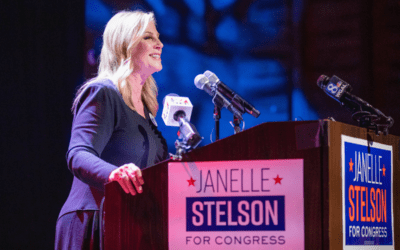
A police officer stands guard at a road leading to central Kyiv, Ukraine, Monday, Feb. 28, 2022. Explosions and gunfire that have disrupted life since the invasion began last week appeared to subside around Kyiv overnight, as Ukrainian and Russian delegations met Monday on Ukraine’s border with Belarus. It's unclear what, if anything, those talks would yield. (AP Photo/Emilio Morenatti)
Though the battle is being waged 5,000 miles away, what happens in the conflict between Russian and Ukraine is of great importance to Pennsylvanians.
Based on how much more you’ve been paying for gas here in Pennsylvania the last couple of weeks, you know that the mere threat of Russia mounting an unprovoked attack on Ukraine was enough to start rattling our economy.
With Russian forces now fully entrenched in Ukraine’s capital and determined to topple the government, the impact of this war could be far more significant here in Pennsylvania and across the US.
The severity of that impact depends on how Russian President Vladimir Putin reacts to the Biden Administration’s response to Russia’s invasion of Ukraine. Putin has threatened to bomb any country that supports Ukraine, with not-so-vague references to Russia’s nuclear might. So far, Biden has only levied economic sanctions against Russia, saying repeatedly he has no desire to respond with military action.
Should tensions boil over between the US and Russia, the fallout on our shores could be far-reaching. A serious downturn in the US economy, the threat of cyber attacks from Russia, and the consequences of US troops heading to Ukraine all have to be given serious consideration. Especially when recent history has shown that Russia has no qualms about trying to inflict harm on the US through a variety of means.
“Russia has already kind of been at war with the US for about 15 years,” said Mitchell Orenstein, a professor of Russian and East European studies at the University of Pennsylvania. “Not everybody is aware of this. It’s kind of a hybrid war. People have experienced ransomware attacks originating in Russia. They’ve shown capabilities to issue disinformation in the US. They’ve hacked into presidential elections. People in the US tend to brush that off as not a big deal, or deny that it’s happening. The fact is that it’s part of an effort to make the United States think that it’s not worth being involved in Europe. History says otherwise.”
1. You Will Pay More for Gas, Wheat, Corn, Fertilizer, and Almost Anything Made of Metal
In the short term, Russia’s invasion of Ukraine will mean rising gas prices and energy costs across America. This despite the fact that America imports very little oil from Russia.
“Even though we might not necessarily be importing much oil from them, oil prices are determined in international markets,” said Yeva Nersisyan, an associate professor of economics at Franklin & Marshall College in Lancaster. “And since Russia is a big producer of oil and natural gas, whatever happens price-wise overseas is not going to stay there. The average Pennsylvanian is going to pay more for gas and for heating their house.”
Nersisyan pointed to two existing issues with the US economy — inflation and the near-certainty of the Federal Reserve raising interest rates — that could be exacerbated by potential US sanctions against Russia and how long the conflict drags on.
“We are likely to see higher than expected inflation because of this,” Nersisyan said. “It depends what kind of Russian companies and industries the sanctions are imposed on. And if the Fed sees rising inflation and decides to hike up interest rates more than they were initially planning before, it’s going to cost even more for Americans to buy a car or a house.”
And while the US imports relatively little directly from Russia or Ukraine, the countries are major exporters of agricultural commodities such as wheat and corn. They also produce much of the inert gasses needed to make the semiconductors used in our cell phones, computers, and cars. On its own, Russian is a major supplier of metal. Nersisyan predicts that the longer the conflict drags on, prices will rise globally due to these supply shortages.
She said Pennsylvania farmers could benefit from the lack of wheat and corn coming from Russia and Ukraine by charging more. But those financial gains would be negated by the rising costs of fertilizer and oil.
2. Russian Cyber Attacks Could Hit Your Bank Accounts
Fear of retaliation through either a military response or cyber warfare will likely keep Russia from launching a full scale cyber attack against the US power grid or water supply, according to Mark Thomas, an assistant professor of political science at La Salle University in Philadelphia. Instead, he feels Russia would be more inclined to launch a low-level cyber attack, which could still have debilitating consequences.
“They could attack the financial sector as retribution,” Thomas said. “That would impact our ability to exchange money, and it would compromise the integrity of the banking system. A bigger concern would be if they hit some of our information technology network nodes that transfer information around the country. That could impact every sector of the US infrastructure.”
Thomas stressed that even a low-level cyber attack could still be devastating, likening it to the crippling impact COVID-19 had on American healthcare systems at its peak.
“The potential impact of even a small cyber attack could be immense,” Thomas said. “You saw what COVID did when the hospitals became overwhelmed as the virus exploded. Imagine a cyber attack as a virus and how that would impact all these different sectors which we think are independent of each other but they’re all talking and working with one another.”
3. You or Your Loved Ones Could Have to Fight in a War
The US is part of NATO and supports the European Union in the interest of preventing wars in Europe. Biden has stated adamantly he won’t send US troops to Ukraine, and a majority of Americans support that stance. But will sanctions be enough to prevent US military involvement?
“I would say the odds are pretty low of us putting combat troops in Ukraine,” Thomas said. “Going into Ukraine would be the tripwire to put us on the ladder of escalation to—and this is scary to say but Putin has referenced it—nuclear war. That’s also what’s making Putin so brave right now. He knows we don’t want to risk going to war directly with Russia.”
Orenstein believes it would take Putin moving beyond Ukraine and into NATO member countries like Estonia and Latvia for US troops to get involved. Using history as a guide, he sees staying the course with sanctions against Russia as the appropriate course of action.
“Whatever the US can do now to send a message to Russia with sanctions that this kind of behavior is unacceptable, that is worth more than its weight in gold for the future,” Orenstein said. “The US learned after fighting (World War I and II) that an ounce of prevention is worth a pound of cure. That pound of cure is us sending our kids over there to fight.”
4. You Probably Know Someone Who is Ukrainian or of Ukrainian Descent
Pennsylvania has the second-largest population of Ukrainian Americans in the US, after New York.
As of 2019, more than 97,000 Ukranians were living in Pennsylvania, according to US Census data. Census data shows that the Philadelphia metropolitan area has the third most people of Ukrainian descent in the US at just under 50,000, after New York City and Chicago. Pittsburgh is 12th with more than 18,000, and the Allentown-Bethlehem-Easton area is 17th with more than 12,000.
Ukrainians are your friends and neighbors.
5. Russia’s Invasion of Ukraine Puts Democracy in Danger
If you think other world leaders aren’t taking cues from Putin’s authoritarian regime, you weren’t paying very close attention to our last president.
Authoritarianism is on the rise across the globe, some of the most notable examples aside from Russia being China’s president Xi Jinping and Hungarian prime minister Viktor Orban.
If Putin is able to annex Ukraine and push farther into NATO territory, it would embolden more leaders with autocratic aspirations. As fragile as democracy has become in recent years, if it crumbles in one place, the likelihood increases that it will fall in other places.
Russia’s success or failure in its war with Ukraine could have massive implications on democracy globally.
“This could have a ripple effect on the whole post World War II map of Europe and the post Cold War map of Europe,” Thomas said. “We could be entering a very unstable period. If I was a leader, I’d say the world is fair game.”
Support Our Cause
Thank you for taking the time to read our work. Before you go, we hope you'll consider supporting our values-driven journalism, which has always strived to make clear what's really at stake for Pennsylvanians and our future.
Since day one, our goal here at The Keystone has always been to empower people across the commonwealth with fact-based news and information. We believe that when people are armed with knowledge about what's happening in their local, state, and federal governments—including who is working on their behalf and who is actively trying to block efforts aimed at improving the daily lives of Pennsylvania families—they will be inspired to become civically engaged.


For Rep. Susan Wild, supporting PA families includes reproductive rights and much more
Rep. Susan Wild wants to be very clear with Pennsylvanians: Donald Trump is committed to taking away women’s reproductive freedom, but he is not...

School districts working with anti-LGBTQ groups can cost your kids’ schools millions
Parents across South Central Pennsylvania are worried about the potential financial impacts working with anti-LGBTQ groups may have on their school...

VIDEO: Trump distances himself from his anti-abortion views
Donald Trump appeared on WGAL on Tuesday and continued to distance himself from his anti-abortion views claiming that reproductive rights are now a...

VIDEO: Community pushback gets school board to rescind decision on denying gay actor’s visit
Cumberland Valley School Board offered a public apology and voted to reinstate Maulik Pancholy as a guest speaker a week after the board voted to...

VIDEO: Project 2025 brings nuclear armageddon back into vogue
Project 2025 is a titanic document, with plans ranging from cutting half of all government employees to targeting reproductive rights on a scale...




